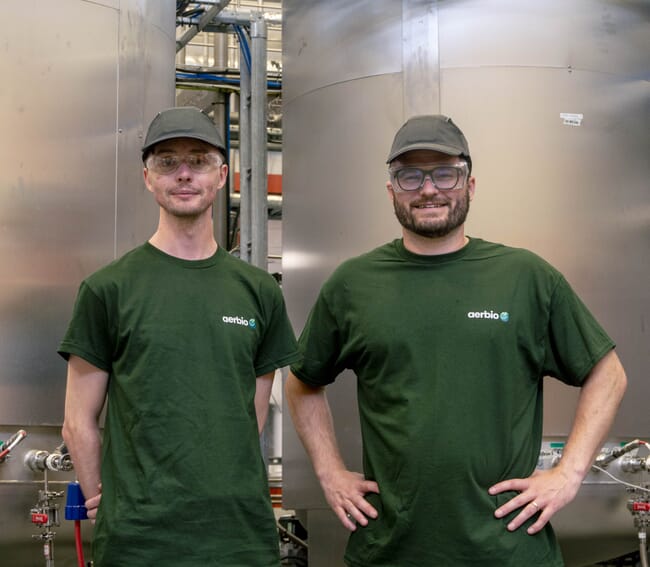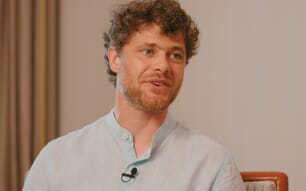
© Aerbio
The project, led by Aerbio—a company formed following a management buy-out of Nottingham-based Deep Branch—is part of the broader REACT-FIRST initiative, which involves a consortium of partners, including the Sustainable Aquaculture Innovation Centre (SAIC).
The new facility, located at the Brightlands Chemelot Campus in the Netherlands, marks a crucial step in the development of a novel single-cell protein, known as Proton, which is intended for use in salmon and chicken feed. This pilot plant will initially produce 200 kilograms of Proton per month, supporting larger feed trials and helping to establish the integration of this innovative protein into existing food supply chains.
Looking ahead, engineering work is already underway on a ‘Market Launch Facility,’ which is expected to have a production capacity of 250 tonnes of Proton annually. Future commercial facilities are anticipated to significantly scale up production, with each site capable of producing 100,000 tonnes of Proton per year.
Pete Rowe, co-founder and chief experience officer of Aerbio, emphasised the importance of this development, stating, “The opening of our pilot facility is a significant step forward for our technology. It proves its scalability – both in terms of production and the operations of the sites. The support we have received from the consortium has been a crucial part of getting us to this point and we’re looking forward to the next phase.”
The production process leverages the increasing availability of hydrogen and carbon dioxide, products of large-scale energy transition projects. Through Aerbio’s fermentation technology, these gases are converted into Proton, which does not require arable land and can be produced near any industrial process generating food-grade carbon dioxide and hydrogen. This could offer countries that currently rely on imported protein-rich ingredients the capability to produce their own supplies domestically.
Proton’s carbon footprint is reportedly up to 90% lower than traditional feed ingredients such as fishmeal or soy. Initial trials suggest that Proton has comparable nutritional benefits to conventional animal and plant-based feed ingredients. Aerbio plans to commence its first product shipments in the coming months, with further trials in chicken and fish feed set to begin before the end of the summer. Results from these trials are expected by early 2025.
The REACT-FIRST initiative, funded by the UK Research and Innovation (UKRI) Transforming Food Production Challenge, is a collaboration of 10 industry and academic partners. The consortium is focused on addressing the climate crisis and achieving net-zero carbon emissions within the food production sector.
Heather Jones, CEO of SAIC, commented on the broader implications of the project, saying, “At the North Atlantic Seafood Forum earlier this year, major salmon farmers and the world’s largest fish feed producers all recognised the vital importance of developing novel feed ingredients to replace marine and land-based ingredients that are finite in supply. The innovation of React First could ultimately help the global fish farming sector to grow sustainably. All of the projects we support aim to enhance the sustainability of aquaculture, while maximising its economic impact – this project is a great example of how you can do both, creating a more resilient food system in the process.”
This pilot facility represents a key development in the pursuit of a more resilient and sustainable global food system, offering potential solutions to some of the most pressing challenges in modern agriculture and aquaculture.




